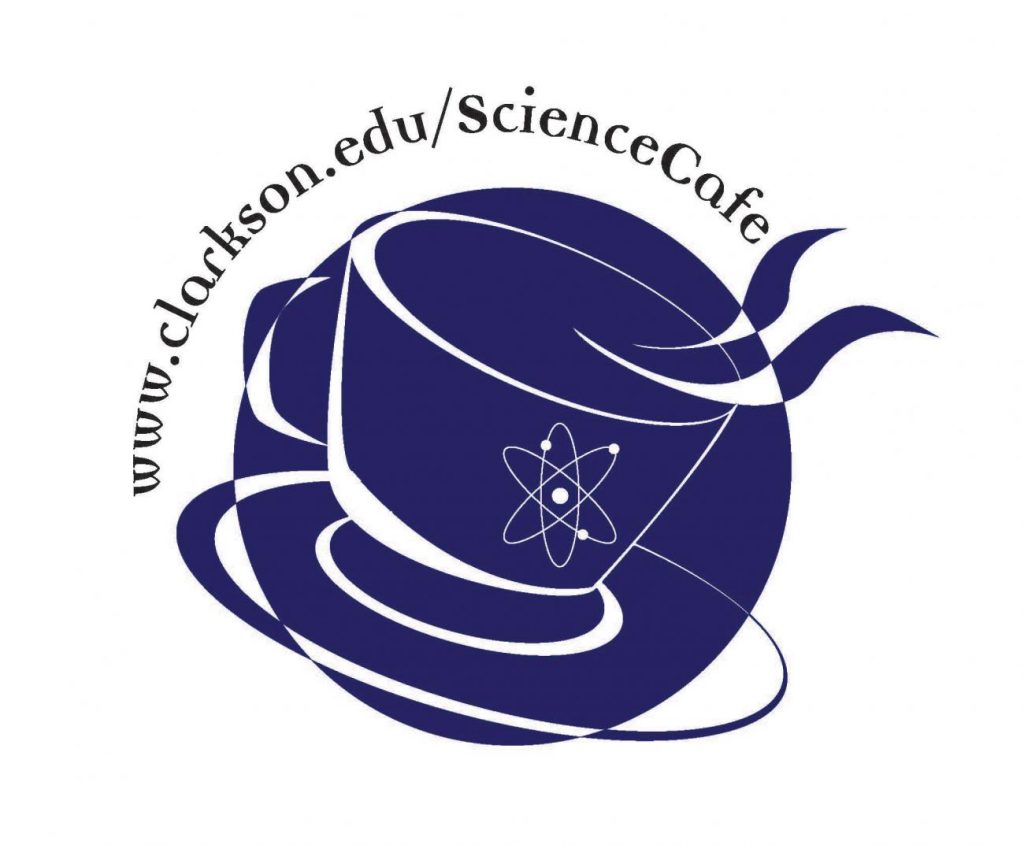University professors and scientists will once again take to the stage starting Feb. 11 for Clarkson University’s “Science Cafe.”
Science Cafes bring together local university and college professors and townspeople in relaxed, informal settings, such as coffeehouses and pubs. The speaker makes a short presentation about a topic in his or her field and then opens up the floor to discussion.

All Canton Science Cafes will take place Tuesdays at 7:15 p.m. at the Best Western University Inn Rushton Room, 90 E. Main St. in Canton, N.Y.
All Potsdam Science Cafes will take place Wednesdays at 7:15 p.m. at the St. Lawrence Valley Roasters & Jernabi Coffeehouse, 11 Maple St. in Potsdam, N.Y.
Here’s a rundown of this spring’s topics and speakers:
Food and the City in India
Canton: Tuesday, Feb. 11
Potsdam: Wednesday, Feb. 12
Bangalore is India’s “IT Capital” and one of Asia’s fastest growing cities. As such, the city has changed dramatically in just four decades. Residents often narrate these changes through the lens of food and health. In particular, they are worried about the safety and sustainability of the food supply chains that link nearby farms with urban consumers’ plates. Join Clarkson Anthropology Professor Camille Frazier for a detailed look at the impact of a rapidly expanding cityscape on regional food networks. What will the future of food look like in a city like Bangalore? What can this tell us about the relationship between food and urbanization on a global scale?
Cannabis Unchained
Canton: Tuesday, Feb. 25
Potsdam: Wednesday, Feb. 26
Cannabis has been part of the pharmacopoeia for millennia. Only in the last 80 years, has it been demonized and effectively outlawed. Yet, in the face of criminalization, cannabis use persists. In this discussion, Ann McLaughlin, Certified Cannabis Caregiver, will explain new findings and what we know about the structure and function of over 100 cannabis compounds, known as “phytocannabinoids,” the role they play in maintaining homeostasis in humans and animals, and how they contribute to physiological, psychological, social, and behavioral effects. Come and get a glimpse of these exciting new discoveries.
Don’t Throw it Away! Recovering Energy from Food Waste
Canton: Tuesday, March 10
Potsdam: Wednesday, March 11
Did you know that about half of the food produced in the U.S. is thrown away? In fact, food waste makes up more than 20% of our solid waste! Instead of throwing it away, food waste can be processed to recover important resources. Resource recovery programs use anaerobic digesters to convert organic wastes into biogas and fertilizer. Join Clarkson Engineering Professors Stefan Grimberg and Jan DeWaters to explore options for our household waste, and hear about the ‘Food-to-Energy’ program happening at Canton Central School, in partnership with Clarkson and St. Lawrence County Cornell Cooperative Extension.
Combatting the Lily Leaf Beetle
Canton: Tuesday, March 24
Potsdam: Wednesday, March 25
Many gardeners in the North Country are familiar with the Lily Leaf Beetle (Lilioceris lilii), a non-native invasive that decimates lilies in gardens across the northern US and southern Canada. However, the beetle also has potential to extirpate populations of native lilies in the wild. Efforts to control the beetle have focused on how gardeners can protect their ornamental lilies, but the beetle’s impact on wild lilies hasn’t been studied. Paul Siskind, a Master Naturalist, will discuss the natural history of the beetle, and explain an integrated pest management protocol that he developed for gardeners. He will also discuss his project of surveying and monitoring infestations of the beetle in wild populations of native lilies across St. Lawrence County.
The Pharmacology of a Public Health Emergency
Canton: Tuesday, April 14
Potsdam: Wednesday, April 15
Opioids provide one of the most effective means of pain relief, but instances of opioid overdose have claimed the lives of over 700,000 people in the US in the last 20 years alone, and the annual mortality rate continues to climb. Despite over 100 years of research on opioids and their receptors, which recognized the addictive nature of oxycodone as early as 1939, understanding of opioid pharmacology among clinical and public health professionals remains poor. In this talk, Clarkson Biology Professor Damien Samways will attempt to demystify the pharmacology of opioids, explaining their effects on the central nervous system, and how their relative potencies and maximal effect ceilings can be altered by changes in neuronal opioid receptor density.
Click here for a shareable link: https://www.clarkson.edu/news/clarkson-university-sets-science-cafes-spring-potsdam-and-canton-3